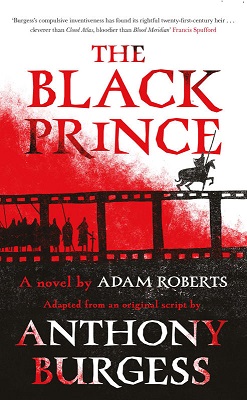I saw this post some months ago and saved it because it jarred and I wanted to write about it. It’s a review by Abigail Nussbaum of the movie Avengers: Infinity war, and I came across it on Twitter because someone posted it as an instance of a really good review. I daresay it is a good review at that. I’ve never seen the movie so I can’t comment. What troubled me was the following paragraph:
It should go without saying that Thanos’s
overpopulation bugbear and his proposed solution for it are hideous
claptrap. Reducing a population by half, whether through violence as
Thanos used to do, or by making people simply disappear as he wants to do with
the Infinity Stones, would result in immediate economic and industrial collapse,
and therefore mass starvation and most likely war. It should go
without saying, but because Hollywood continues to linger in the grip of
Malthusianism decades after the rest of the world saw it for the racist
nonsense that it is…
As I say, I haven’t seen the movie and don’t know who Thanos is, but if he’s proposing genocide that is clearly VERY VERY BAD INDEED. No dispute there! But, unless I’ve completely misunderstood her, what the reviewer seems to saying (and she’s not the only one I’ve heard say it) is that the very idea that overpopulation is a problem is ‘hideous claptrap’ .
Really?
I’m 63. I’m living on a planet whose population is over seven and a half billion, which is getting on for three times what it was when I was born. It’s a planet in the middle of one of the great mass extinction events of its history, a planet where the biomass of human domestic animals is now greater than that of all other animals of similar size, a planet where human activity has destabilised the climate itself and is threatening to acidify the ocean to a point that marine animals with shells may not be able to survive. And I personally am so far from seeing the idea of overpopulation as claptrap that I find it hard to imagine being inside a head that thinks it is.
It seems I’m with Hollywood on this one.
It’s true that population is not on its own a reliable indicator of the human impact on the rest of the planet, because the impact of any one human being is dependent on his or her behaviour. If we eat meat and diary products, for instance, we have a much greater impact than if we are vegan, because meat and milk production are, in nutritional terms, far less efficient uses of land than growing edible plants. In the same way, if we drive a car and use aeroplanes, we will have a much greater impact than if we only walk or use a bicycle. And if we have a centrally heated house with a TV, a fridge and a washing machine, our impact will be much greater than if we live in a hut and don’t use electric power at all (although it must be said that, even if we rely entirely on firewood for heat and light, that can still have a considerable impact.)
The odd idea that being concerned about population is ‘racist’ originates, I imagine, from a time when people in wealthy countries expressed concern about the rapidly growing populations in developing countries without acknowledging that their own extravagant patterns of consumption were at least as much of a problem. I get that. But still, it is pretty poor logic to take from that the idea that concern about overpopulation is racist per se.
The fact is that all human behaviour impacts on the environment and the impact of any given human behaviour has to be multiplied by the number of people on the planet who behave in that way. A billion people driving cars X number of miles per year generates a billion times the amount of carbon dioxide as one person driving a car X miles per year. A billion people clearing forest to grow crops to eat will need a billion times as much forest as one person. So, yes, population is only part of the story, but it is an indispensable part nevertheless. Say the human race were collectively to change its behaviour in such a way as to reduce the impact of every person on the planet by 50%. The population only has to double for the benefit of that change to be lost. And since, however much the human population increases, the surface area of the planet remains unchanged, it must be the case that, for any given pattern of human behaviour, however frugal, there must be a physical limit to how many people the planet is able to support.
Which takes me to the second charge made (in this particular film review but also elsewhere) against the idea that overpopulation is a problem. Not only is it racist, but it is Malthusian.
The implied
argument goes something like this: We
know that Malthus was concerned about human population, right? We know that his predictions were wrong. We also know that some of what he said was
pretty obnoxious. QED being concerned
about overpopulation is ‘Malthusian’ and therefore both wrong and obnoxious. Right?
No, of course not! We are not living in the age of scholasticism, and arguments do not stand or fall on the authority of whatever famous name happens to have become associated with them. Calling someone a ‘Malthusian’ for being concerned about overpopulation, like calling them racist, is not an argument at all, it’s a way of shutting down the discussion. It’s an exercise in denial.


